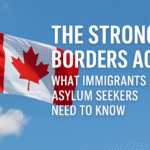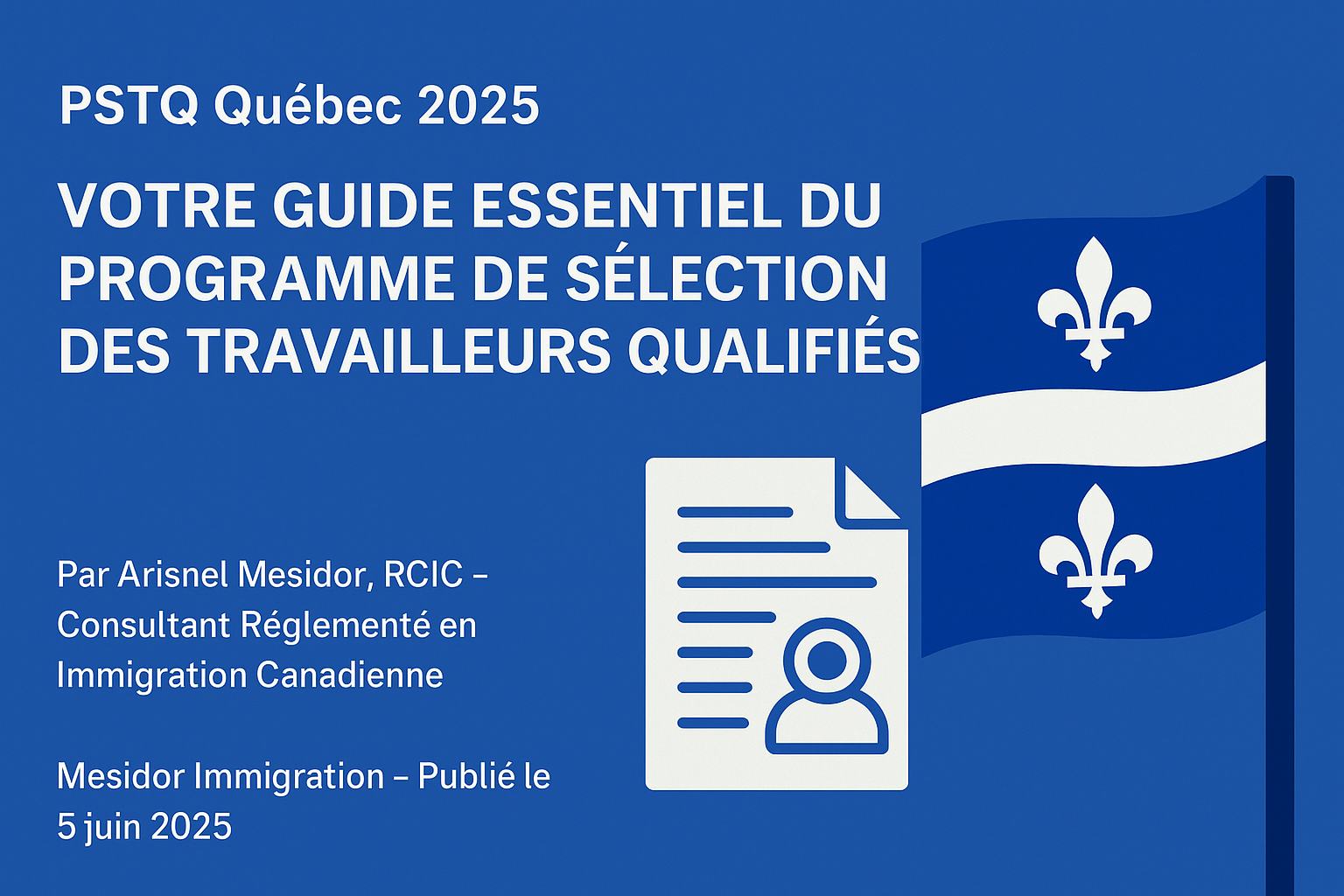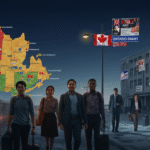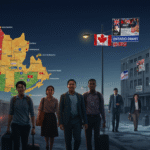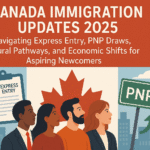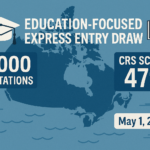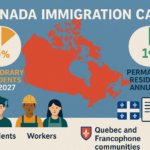Navigating the Shifting Landscape of Canadian Immigration: June 2025 Update
Published on
The Canadian immigration landscape is currently experiencing notable transformations, with significant June 2025 updates affecting prospective immigrants. Recent governmental announcements are reshaping provincial nominee programs, adjusting federal admission targets, and redefining integration policies. Individuals considering immigration to Canada, along with industry stakeholders, should familiarize themselves with these pivotal developments emerging from Ontario, British Columbia, Saskatchewan, Quebec, and the federal International Experience Canada (IEC) initiative.
Provincial Nominee Programs (PNPs) Undergo Significant Restructuring
Several Canadian provinces are adapting to decreased federal immigration targets by re-evaluating their nomination strategies.
Ontario (OINP): Federal Admission Quota Halved for 2025
The Ontario Immigrant Nominee Program (OINP) is preparing for a major shift. Its federal admission allowance for 2025 has been reduced by half compared to the 21,500 spots available the previous year. This change, which took effect on May 30, 2025, means Ontario will have considerably fewer nominations to issue. While the provincial Ministry of Immigration maintains its dedication to meticulously reviewing applications to identify skilled economic immigrants for critical workforce gaps, prospective applicants should brace for extended processing periods. It's also anticipated that Ontario will modify its selection criteria to reflect these new federal limitations.
Saskatchewan (SINP): New Policies Prioritize In-Canada Applicants, Affecting Overseas Candidates
Saskatchewan’s Immigrant Nominee Program (SINP) is also navigating substantial adjustments following a 50% cut in its provincial immigration target by the federal government. A significant new directive now requires that three-quarters of the province's reduced quota be filled by temporary residents already living and working within Canada.
As a result, SINP will now largely focus on applications from skilled individuals already employed in Saskatchewan who possess a Job Approval Letter. Exceptions will be made for those in essential sectors like healthcare, agriculture, or skilled trades. Applications for industries such as food services, retail, and trucking are currently being returned, as the 2025 quotas for these fields have already been met. This change significantly limits opportunities for many international applicants who do not have a pre-existing job offer in Saskatchewan's key sectors.
British Columbia (BCPNP): Emphasis on Attracting Entrepreneurial Immigrants
On May 28, 2025, British Columbia conducted a targeted draw through its British Columbia Provincial Nominee Program (BCPNP), specifically for entrepreneurs.
- Entrepreneur Stream (Base Category): Nine invitations were extended to seasoned business professionals intending to launch a new enterprise or take over an existing one in British Columbia. The minimum score required for this round was 115 points.
- Entrepreneur Immigration - Regional Pilot: A maximum of five candidates were invited through this stream, needing a minimum score of 123. This pilot program is designed to encourage entrepreneurial investment in communities outside of major urban centers.
To date in 2025, British Columbia has issued 136 invitations through the BCPNP, with as many as 42 of these directed towards entrepreneurs (based on published 2025 draws). This contrasts with the previous year when the province invited up to 80 business candidates via its Entrepreneur draws (details typically found under historical draw data on the official site).
Quebec: Transitioning to an Intercultural Integration Framework
Quebec is forging a unique path in its philosophy of cultural integration. Minister Jean-François Roberge has signaled a departure from multiculturalism, introducing a new provincial model centered on interculturalism.
This updated approach will necessitate that newcomers actively subscribe to Quebec's societal values, which prominently feature the French language, democratic principles, gender equality, and state secularism. A detailed "National Policy on Integration into the Quebec Nation and the Common Culture" is expected to be rolled out by 2026. This policy will oblige all government bodies to confirm that projects receiving public funds are in harmony with these core tenets. This policy direction is encapsulated in Bill 84, which has the support of the Parti Quebecois but faces dissent from the Solidarity and Liberal parties.
Federal Update: IEC Program Invites Over 8,000 Candidates in May
At the federal level, Immigration, Refugees and Citizenship Canada (IRCC) maintained its pace of invitations for the International Experience Canada (IEC) program. During May, specifically from May 3rd to May 30th, IRCC data indicates that 8,060 young individuals from eligible countries received invitations to apply for an IEC open work permit.
As of the end of May, 27,994 candidates were registered in the pool and waiting for an invitation. The distribution of Invitations to Apply (ITAs) in May saw substantial numbers issued to applicants from countries including Japan (1,663), the United Kingdom (1,456), South Korea (1,035), Australia (897), and France (799), among many others (country-specific data is available on the IRCC IEC pages).
Cumulatively in 2025, Canada has issued 73,327 ITAs under the IEC Program (as of May 30, 2025). This program facilitates temporary work and travel for youth through streams like Working Holiday, Young Professionals, and International Co-op.
Key Takeaways: Understanding These June 2025 Canadian Immigration Changes
The Canadian immigration system is dynamic, and these June 2025 updates underscore significant shifts. These recent developments highlight a move towards more specific provincial selection criteria, frequently giving preference to candidates already in Canada who possess sought-after skills or entrepreneurial ambitions. Coupled with these are significant policy realignments in provinces such as Quebec. It is crucial for anyone planning to immigrate to Canada to keep informed of the latest directives from both IRCC and the various provincial immigration authorities to effectively plan their journey.
Your Journey to Canada Starts with Staying Informed and Seeking Expert Guidance.
The Canadian immigration landscape is constantly evolving, and understanding these changes is the first step towards a successful application. Don't let these updates overwhelm you; instead, use them as an opportunity to strategize effectively.
Knowledge is power. To keep your finger on the pulse of all things related to Canadian immigration, from policy shifts to new program announcements and draw results, we invite you to explore the comprehensive Mesidor Immigration News.
Every immigration journey is unique. To understand how these recent developments specifically impact your profile and to discover the most suitable immigration pathways available to you, professional guidance is invaluable. We encourage you to contact Mesidor Immigration to schedule a consultation. Their experienced team can help you navigate the complexities, assess your eligibility, and develop a tailored strategy to achieve your Canadian dream.



